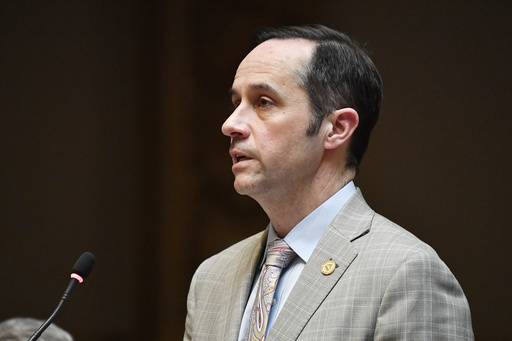
FRANKFORT, Ky. — A Kentucky legislator is optimistic that recent public scrutiny surrounding the numerous pardons and commuted sentences issued by former President Joe Biden is providing a boost to his proposal aimed at limiting the pardon powers of state governors. “While this proposal won’t directly impact federal policies, it highlights the essence of executive authority,” stated Republican state Senator Chris McDaniel on Friday.
McDaniel’s initiative aims to amend the state constitution to impose restrictions on the governor’s ability to grant pardons and commutations during the final phases of their term. Specifically, the proposed legislation would prevent governors from exercising this power within 60 days prior to a gubernatorial election and during the interval between the election and the subsequent inauguration.
The Kentucky Senate passed the proposal with strong bipartisan support, and it is now headed to the House, where similar initiatives have previously faced setbacks. With Republicans holding supermajorities in both chambers, should the House approve the measure, it would then proceed to be presented to voters on the 2026 general election ballot for a statewide decision.
This legislative move is largely a reaction to the pardon spree witnessed at the end of former Republican Governor Matt Bevin’s administration, during which he issued over 600 pardons and commutations. Many of these actions sparked significant backlash from victims, families, prosecutors, and legislative members. Bevin, who lost his reelection bid in 2019 to Democrat Andy Beshear, has remained a focal point of controversy due to his actions. Notably, a Louisville newspaper won a Pulitzer Prize for its in-depth reporting on the implications of Bevin’s pardons.
The aftereffects of Bevin’s pardons lingered in the community, as reported cases include a person pardoned by Bevin being charged with a knife attack and another being sentenced to 42 years in federal prison for a drug-related homicide—both instances drawing ire and concern about the implications of such pardons. The latter individual had familial ties to Bevin, having hosted a fundraising event in support of the former governor.
In a strategic move, McDaniel is leveraging the controversy surrounding Biden’s pardons to garner additional support for his proposal. Biden, prior to leaving office, altered the sentences of 37 federal death row inmates to life imprisonment without the possibility of parole, which included individuals convicted of killing police officers and military personnel. His administration also commuted numerous sentences for nonviolent drug offenders and individuals released to home confinement during the COVID-19 pandemic.
Biden also pardoned his son Hunter for multiple federal offenses, extending immunity for any potential violations that may have occurred during an 11-year period, amid fears of political retribution from Trump supporters. McDaniel, through his recent press materials, criticized Biden’s actions as a “disgraceful abuse of executive power” and added references to various news articles detailing Biden’s pardons, including the notable case of Indigenous activist Leonard Peltier.
Although there was no mention of Donald Trump’s actions in McDaniel’s press release, it is important to note that Trump also made significant use of his pardon powers towards the end of his first term. He issued a series of pardons just before leaving office and resumed this practice on returning to the White House, notably and controversially offering pardons to individuals involved in the January 6 Capitol riots.
McDaniel emphasized on the Senate floor that the current pardon powers in Kentucky allow governors to “override the judgment” of the judicial system. He argues that his proposal would enhance accountability for governors by limiting their authority to grant pardons in the lead-up to and following elections. “We are committed to eliminating the shrouded activities that occur during the twilight of an administration,” he remarked. “No longer will wealth and influence dictate justice without accountability for the citizens of our state.”

